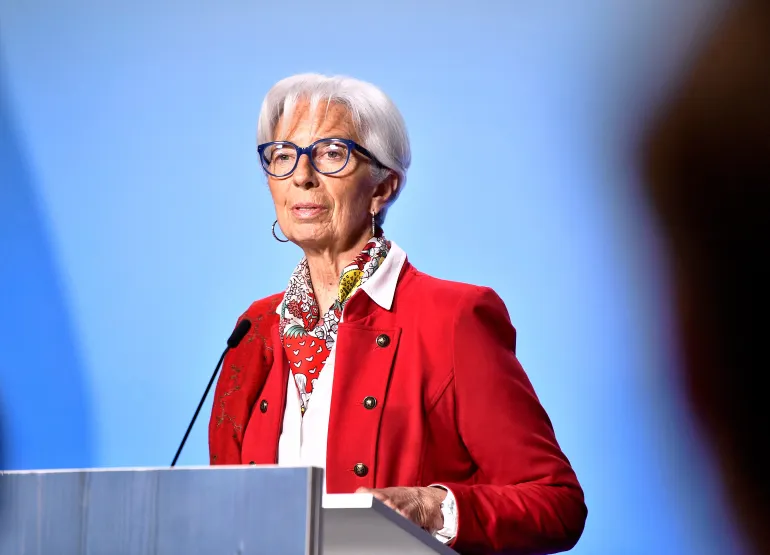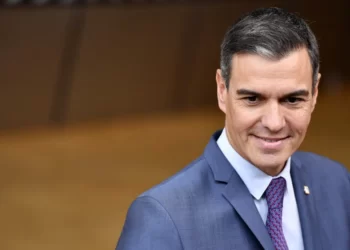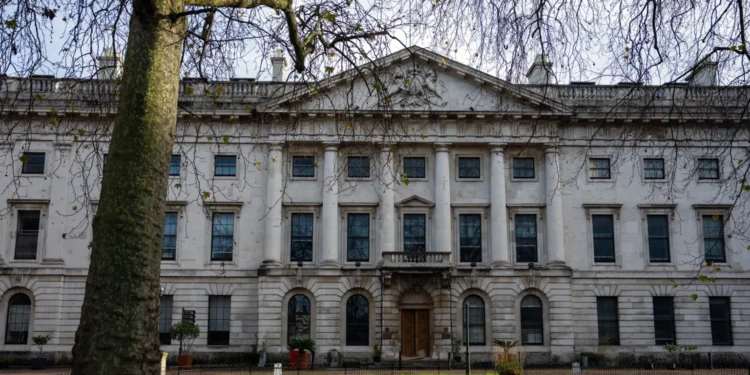The European Central Bank President, Christine Lagarde, has urged Europe to move towards economic independence.
In an interview, Lagarde asserted that Europe is facing an “existential moment.”
As such, she stated that Europe should “take greater control of our destiny” and a “step towards independence” in the face of Donald Trump’s trade moves.
This comes as the US President’s anticipated tariff announcement looms.
Trump’s April 2 tariff announcement, which he has dubbed “liberation day,” is just the latest in a flurry of trade salvoes launched by the US president in recent weeks.
Many of the measures – including 25 percent tariffs on Canada and Mexico, and a 25 percent duty on all auto imports – are set to go into effect this week.
Other tariffs – including a 20 percent duty on all Chinese imports and 25 percent duties on aluminium and steel – have been in place since last month.
The US President’s trade salvoes have stoked tensions with some of Washington’s closest allies, including Canada, Japan and the EU.
Trump clarified earlier that the anticipated tariffs would apply to “all countries,” pouring cold water on hopes that the measures might only target countries responsible for the bulk of the US trade deficit.
Economists have expected the upcoming salvo could target the 15% of partners that have persistent trade imbalances with the US, a group that the US Treasury Secretary, Scott Bessent, has dubbed a “Dirty 15.”
While Bessent did not mention any countries by name, the US has some of its biggest trade deficits with China, the European Union, Canada, India, Japan, Vietnam and South Korea.
In a potential clue as to Trump’s next moves, the Office of the US Trade Representative on Monday released a list of policies and regulations in dozens of countries that it considers barriers to trade.
The report outlined tariff rates and non-tariff barriers, such as food safety regulations and green energy rules, for China, the EU, Canada, Argentina, Mexico and the United Arab Emirates, among other trade partners.
Besides reciprocal country tariffs, Trump could unveil additional sector-specific levies on the likes of pharmaceuticals and semiconductors.
Ryan Sweet of Oxford Economics said to “expect the unexpected”, anticipating that Trump would “take aim at some of the largest offenders.”
Trump To Be Kind On Anticipated Tariffs

Meanwhile, US President Donald Trump said that his long-awaited reciprocal tariffs will be lower than what other countries charge as uncertainty over his biggest trade announcement yet continues to roil global stocks.
Speaking at the White House, Trump said that the tariffs he is preparing to announce on Wednesday, April 2, 2025, will be “nicer” than the trade policies of US trading partners.
“We are going to be very nice by comparison to what they were. The numbers will be lower than what they have been charging us, and in some cases, maybe substantially lower.
“Relatively speaking, we’re going to be very kind.”
Donald Trump
Repeating his regular talking point that the US has been taken advantage of by its trading partners, Trump said that the measures would bring “tremendous wealth back to our country.” He added, “It’s really, in a sense, a rebirth of our country.”
While Trump has argued that his tariffs will boost manufacturing and create jobs in the US, economists have warned that the measures are likely to upend global supply chains.
Trump’s fixation on tariffs is also fanning US recession fears.
Goldman Sachs analysts raised their 12-month recession probability from 20% to 35%. This reflects a “lower growth forecast, falling confidence and statements from White House officials indicating willingness to tolerate economic pain.”
Goldman Sachs also lifted its forecast for underlying inflation at the end of 2025.
READ ALSO: Erastus Asare Donkor Blasts Government Inaction, Political Interference Over Galamsey























